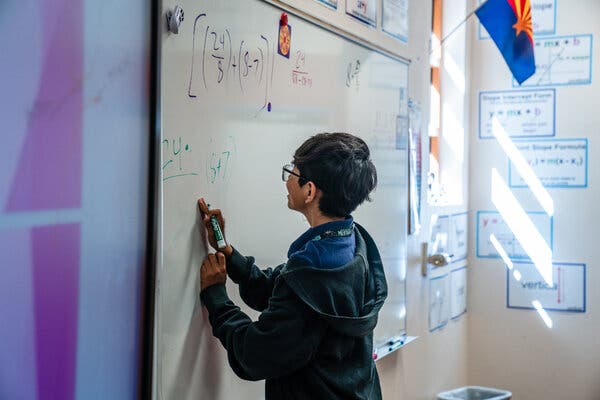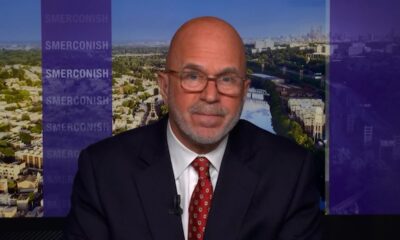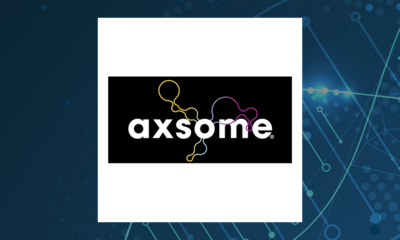Lifestyle
U.S. Education System Faces Ongoing Debate Over Gifted Programs

The ongoing debate surrounding the identification and education of gifted children in the United States has intensified in recent years. In major urban centers such as New York City and Seattle, discussions revolve around how to best support advanced learners while addressing systemic inequities. Meanwhile, in Fairfax County, Virginia, school leaders grapple with the implications of labeling students as “gifted.”
Across the nation, the definition of giftedness remains contentious. Some children exhibit exceptional skills at an early age, including first graders engaging with complex texts like Charlotte’s Web or ten-year-olds adept at calculating the circumference of a circle. An estimated three million students in U.S. public schools are currently enrolled in gifted programs, highlighting the widespread interest in advanced education.
Yet, these programs have become a focal point for criticism. The enrollment disparities often reflect broader societal divides, particularly along lines of race, income, and disability status. This situation raises critical questions about the fairness of the identification processes used to determine which students receive access to advanced educational opportunities.
Challenges in Identifying Gifted Students
In Seattle, teachers are engaged in discussions about improving the enrollment rates of Black and Latino students in gifted programs. The historical underrepresentation of these groups has persisted for decades, prompting calls for reform and more equitable evaluation methods. Local educators emphasize the need for a more inclusive approach that recognizes diverse talents beyond traditional academic performance.
Similarly, in New York City, families are debating whether a select group of four-year-olds should be directed into gifted education pathways. Proponents argue that early identification can lead to vital academic advantages, while critics express concern over the potential exclusion of students who may not fit conventional definitions of giftedness.
The Future of Gifted Education
The discussions in Fairfax County illustrate the complexities faced by school districts nationwide. Administrators are reconsidering the implications of labeling students as “gifted” and how these labels can impact self-esteem and educational trajectories.
As the debate continues, education stakeholders are urged to consider innovative methods for identifying gifted students. Approaches that focus on holistic assessments, including creativity and problem-solving skills, could provide a more comprehensive understanding of a child’s capabilities.
The conversation surrounding gifted education is not likely to dissipate soon. With over three million students involved in gifted programs, the stakes are high. The challenge remains to ensure that these educational opportunities are accessible and equitable, fostering a system that recognizes the diverse potentials of all students.
By addressing the disparities in gifted education, the hope is to create a more inclusive environment that nurtures the talents of every child, regardless of their background. As discussions unfold, it is clear that the path forward will require collaboration among educators, families, and policymakers to cultivate an equitable educational landscape.
-

 Technology5 months ago
Technology5 months agoDiscover the Top 10 Calorie Counting Apps of 2025
-

 Health3 months ago
Health3 months agoBella Hadid Shares Health Update After Treatment for Lyme Disease
-

 Technology7 days ago
Technology7 days agoOpenAI to Implement Age Verification for ChatGPT by December 2025
-

 Health3 months ago
Health3 months agoErin Bates Shares Recovery Update Following Sepsis Complications
-

 Technology4 months ago
Technology4 months agoDiscover How to Reverse Image Search Using ChatGPT Effortlessly
-

 Technology3 months ago
Technology3 months agoElectric Moto Influencer Surronster Arrested in Tijuana
-

 Technology1 month ago
Technology1 month agoDiscover 2025’s Top GPUs for Exceptional 4K Gaming Performance
-

 Technology5 months ago
Technology5 months agoMeta Initiates $60B AI Data Center Expansion, Starting in Ohio
-

 Technology5 months ago
Technology5 months agoRecovering a Suspended TikTok Account: A Step-by-Step Guide
-

 Health3 months ago
Health3 months agoAnalysts Project Stronger Growth for Apple’s iPhone 17 Lineup
-

 Health5 months ago
Health5 months agoTested: Rab Firewall Mountain Jacket Survives Harsh Conditions
-

 Lifestyle5 months ago
Lifestyle5 months agoBelton Family Reunites After Daughter Survives Hill Country Floods





















